-

The glossy leafed Eupomatia laurina
This ancient flowering plant has a fossil record of 120 million years, it’s primitive flowers are a legacy from Gondwana. Isn’t that mind blowing!? The perfumed, glossy green tree with edible fruits is the perfect addition to a bush food garden. My Mum’s Eupomatia laurina is flowering and this is the first time we have…
-
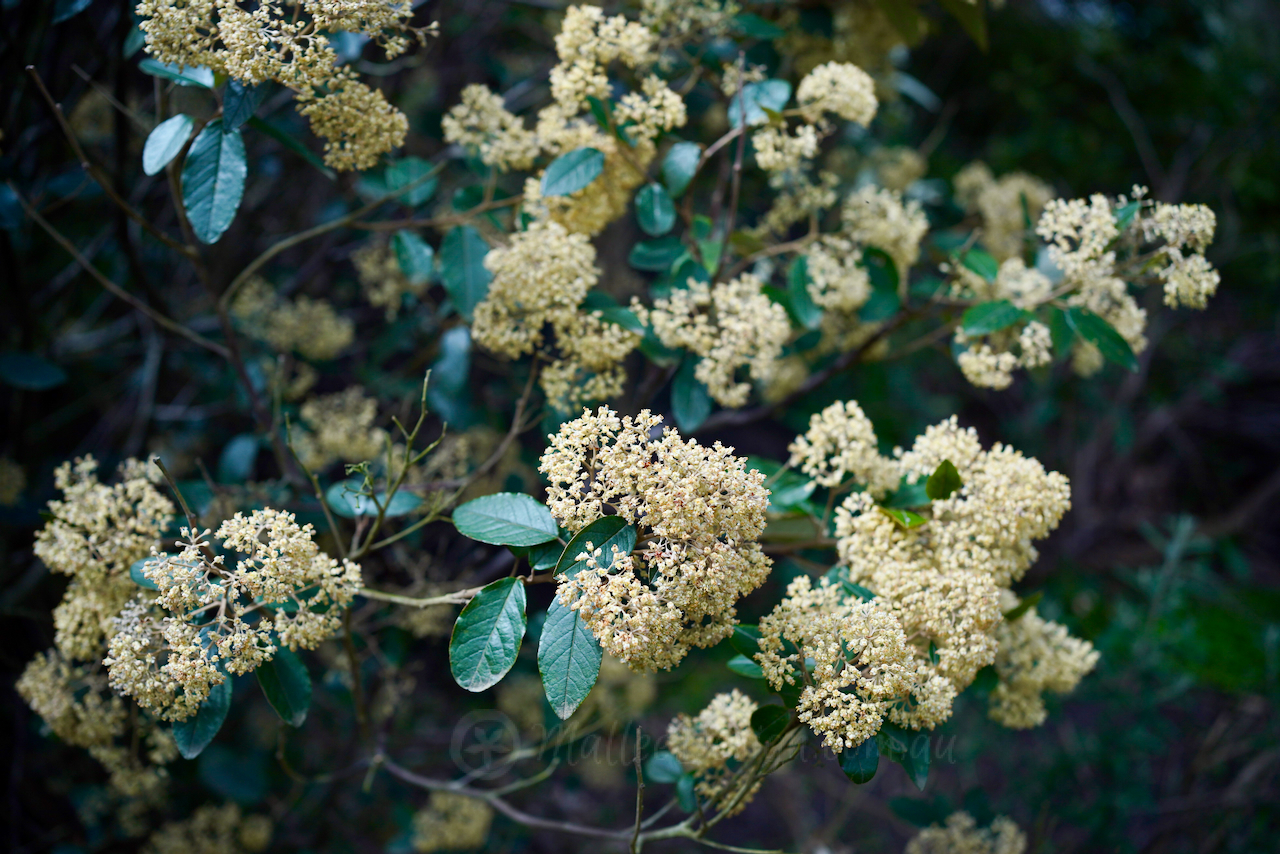
Pomaderris Elliptica: feature screening
After much sleuthing and a little bit of travel I have finally figured out which Pomaderris I saw flowering its head off in Cranbourne Botanical gardens last year. It only took a quick dash around Hobart Botanical Gardens, a few weeks ago, where I spotted it with a label! I am also guilty of planting…
-
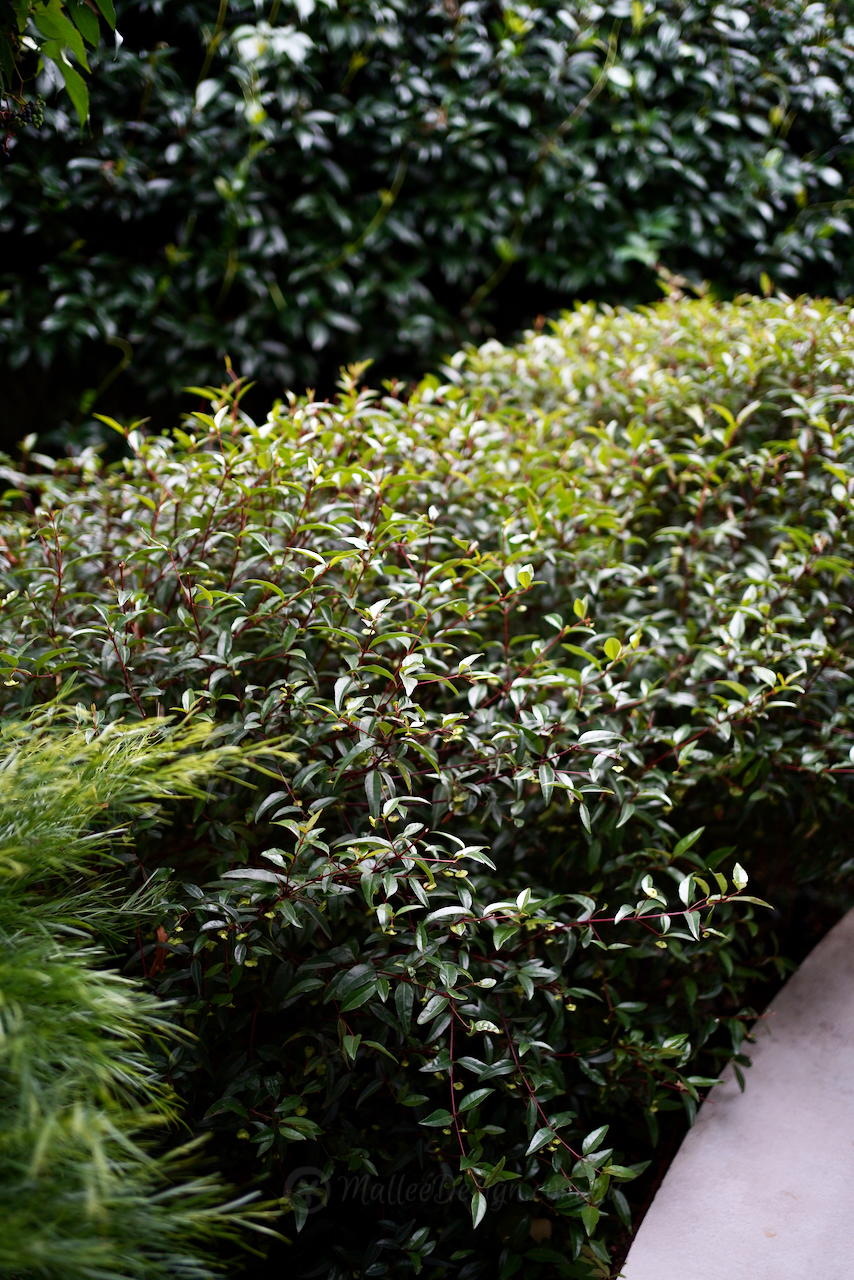
Correa baeuerlenii
Here is another of my very favourite Correas that is such a useful plant in the landscape. Correa baeuerlenii or Chef’s Hat Correa is found naturally growing on the south coast of NSW on shady, damp sites, therefore it grows happily under large trees and will cope with periods of dry and also light frost.
-
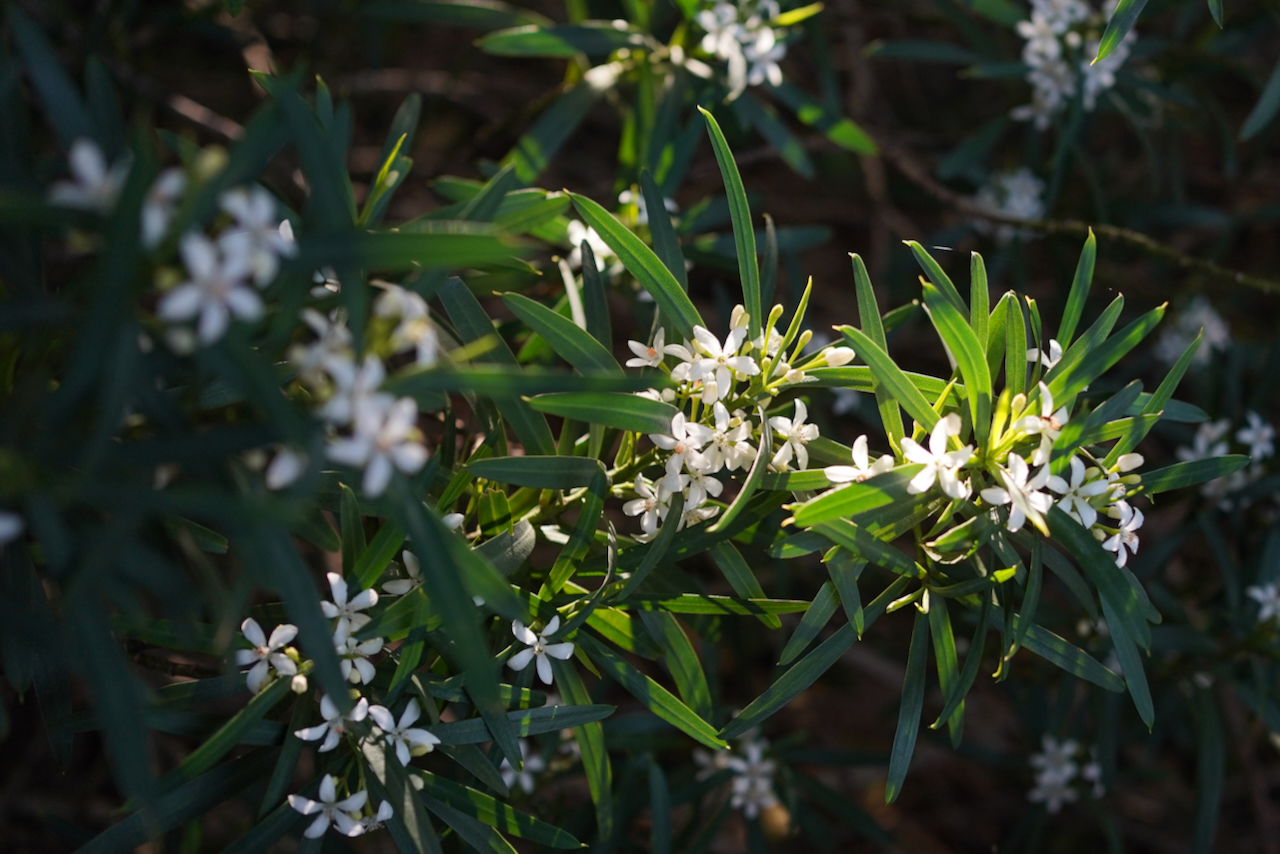
Philotheca myoporoides and it’s many forms
This gorgeous shrub is called Wax Flower or Philotheca, which apparently means “loving receptacle”. And that it is, providing plenty of flowers for pollinators and scent for humans, it is a very hardy species which can handle sun and shade in equal measure. Because of its hardiness it is one of the most widely cultivated…
-
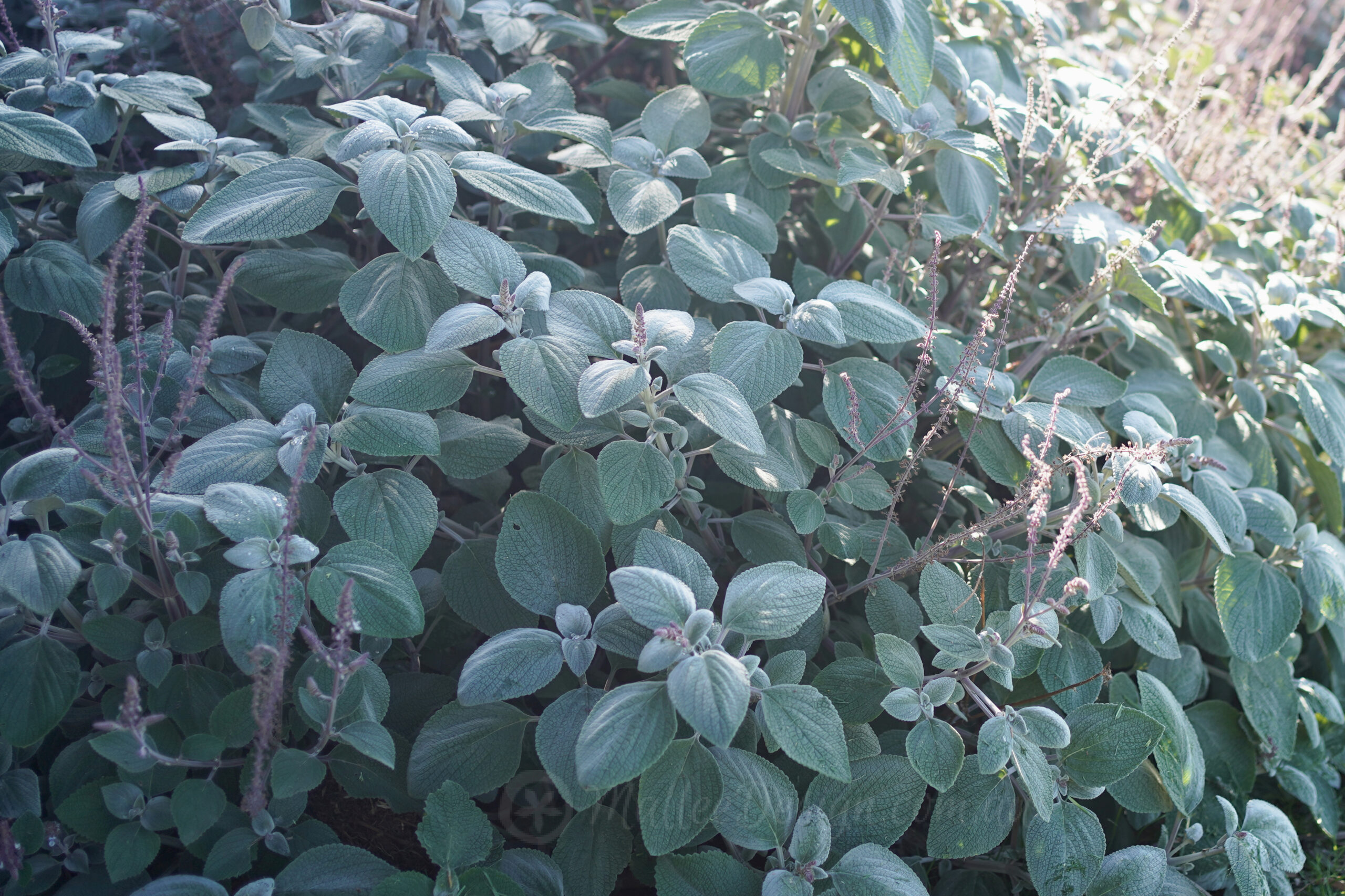
Silver in the Shade: Plectranthus argentatus
If you are looking for a native under story plant to grow where no plant has succeeded before give Plectranthus argentatus a try. It will grow in the dry soil under large trees and ramble about filling in bare patches creating a dense silver layer to a dark forgotten corner. Plectranthus argentatus has a lightly…
-
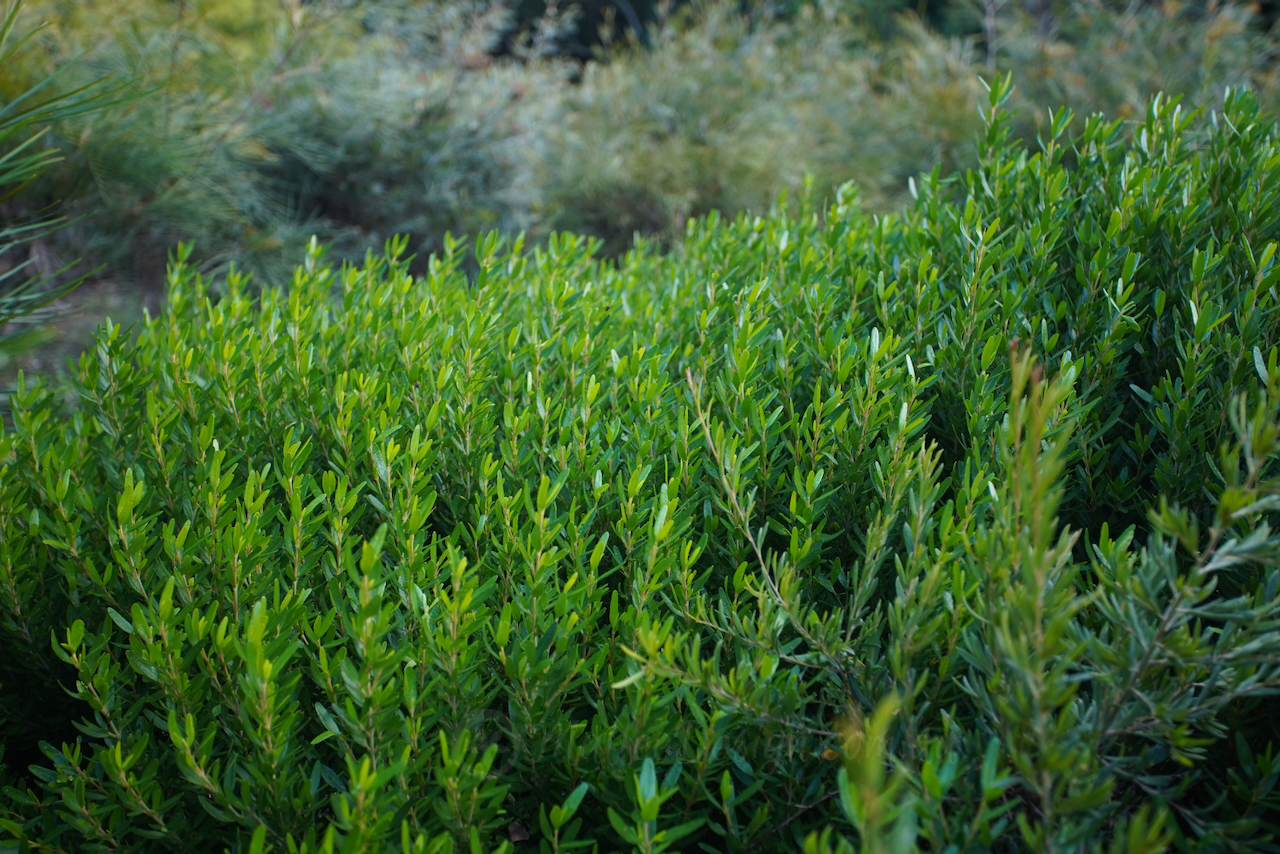
however you like it: correa glabra
This small to medium shrub is commonly known as Rock Correa, due to its ability to grow in gravelly soils, making it super tough. I absolutly love Correas but find it quite difficult to grow them in my location. Correa glabra is easily the toughest one I use in coastal NSW gardens. In fact the…
-
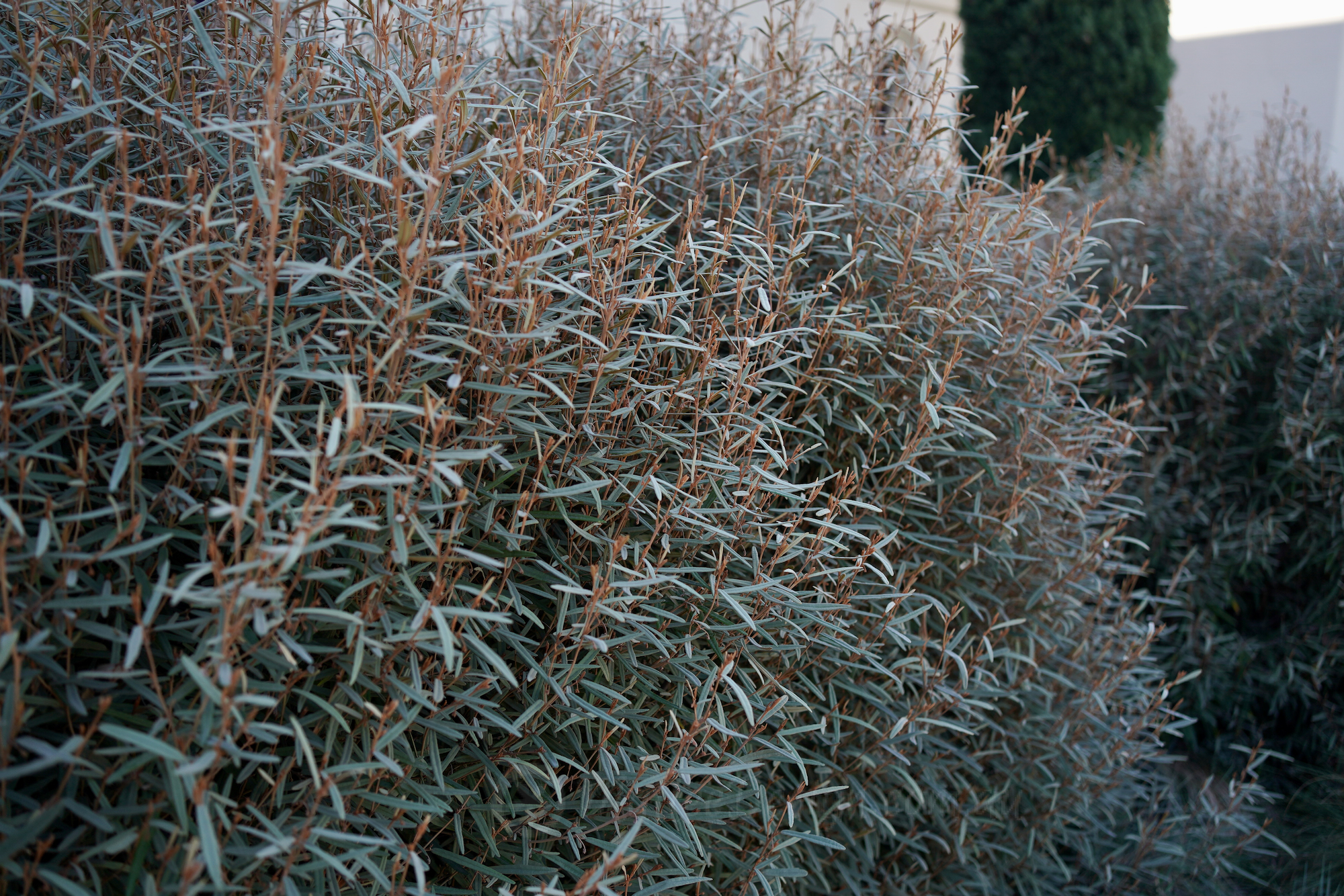
Another furry leaved beauty: Lasiopetalum baueri
This is commonly known as Slender Velvet Bush, which is a most apt description of this interesting under-storey shrub. Lasiopetalum baueri has rusty coloured , furry new growth and pretty delicate pink flowers in Winter. The dried flowers are long-lasting and have potential as a cut flower and the attractive foliage lasts for ages in…
-
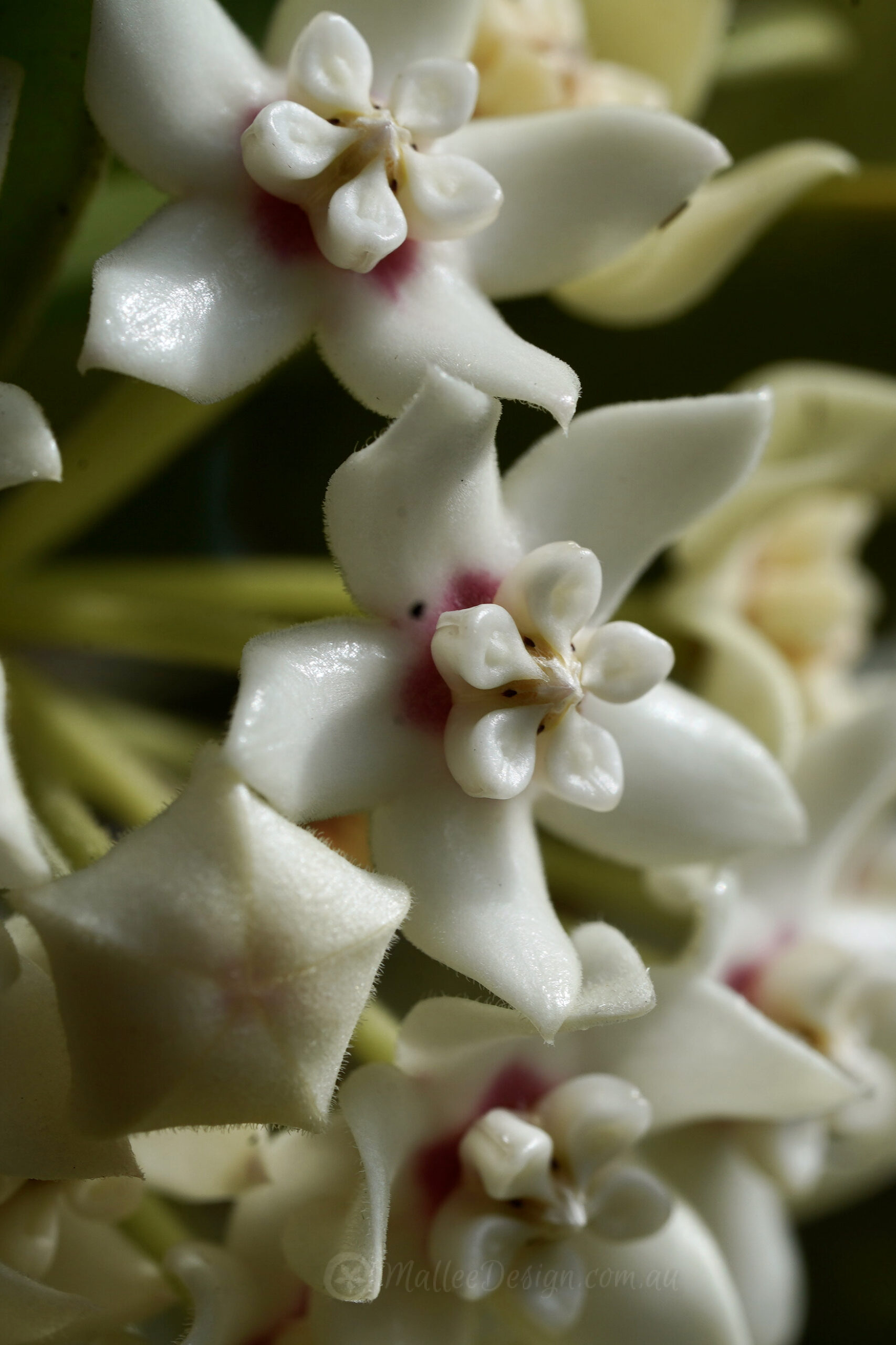
A flower within a flower within a flower … Hoya australis
This is Hoya australis or Wax flower and I have taken some close up photos which demonstrate perfectly why this umbel has been given its common name. I find this one of the most curious flowers from our native vine species, it is a large highly perfumed umbel of tiny wax like flowers which is…
-
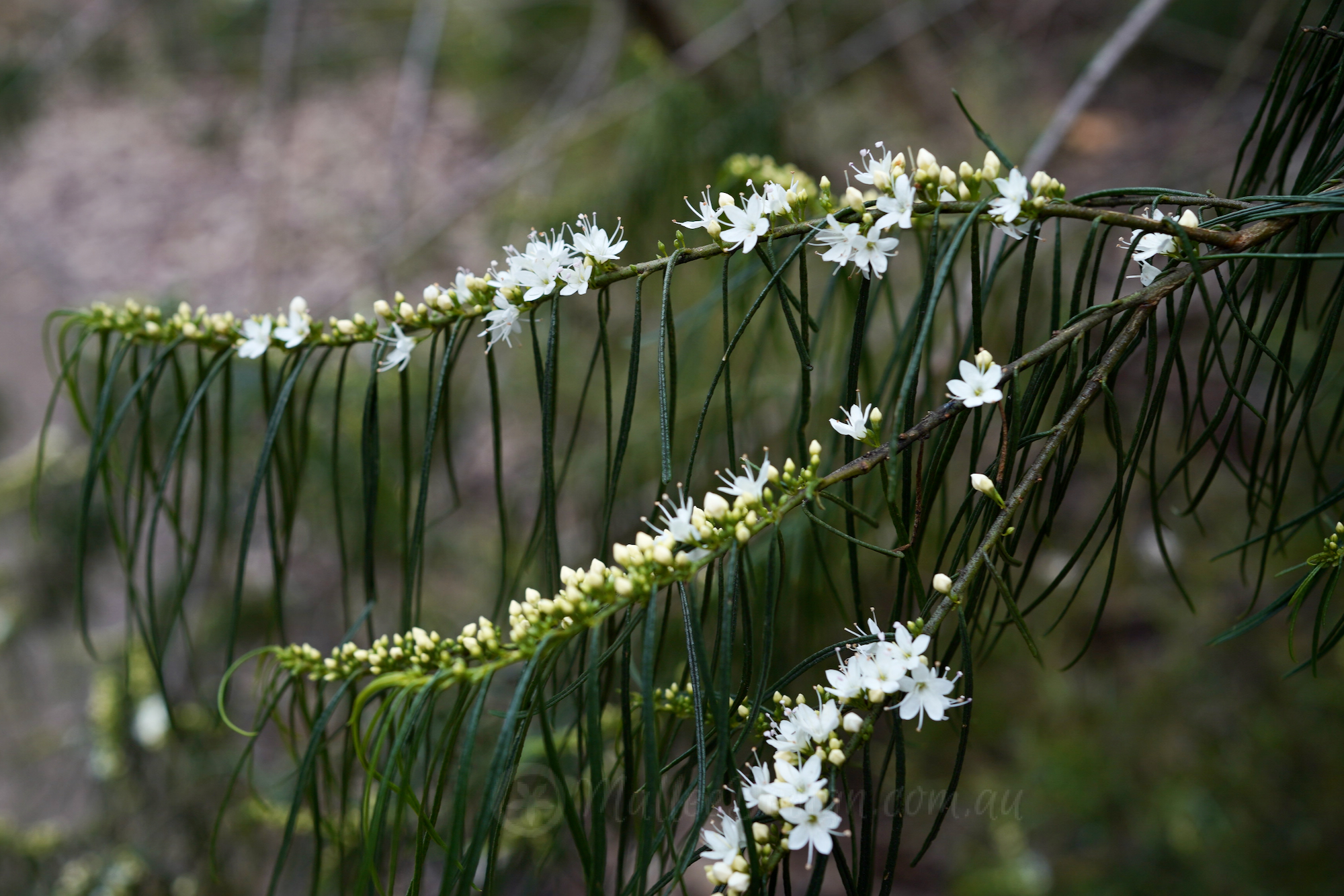
The most weeping of the weeping: Myoporum floribundum
I am obsessed with plants with a weeping habit or drooping foliage, some people find them sad and depressing looking but they are my favourite. There are many native plants with soft long leaves or gently falling branches, they can create dense screens, focal points or backdrops. Weeping foliage in a garden gives a relaxed informal…
-
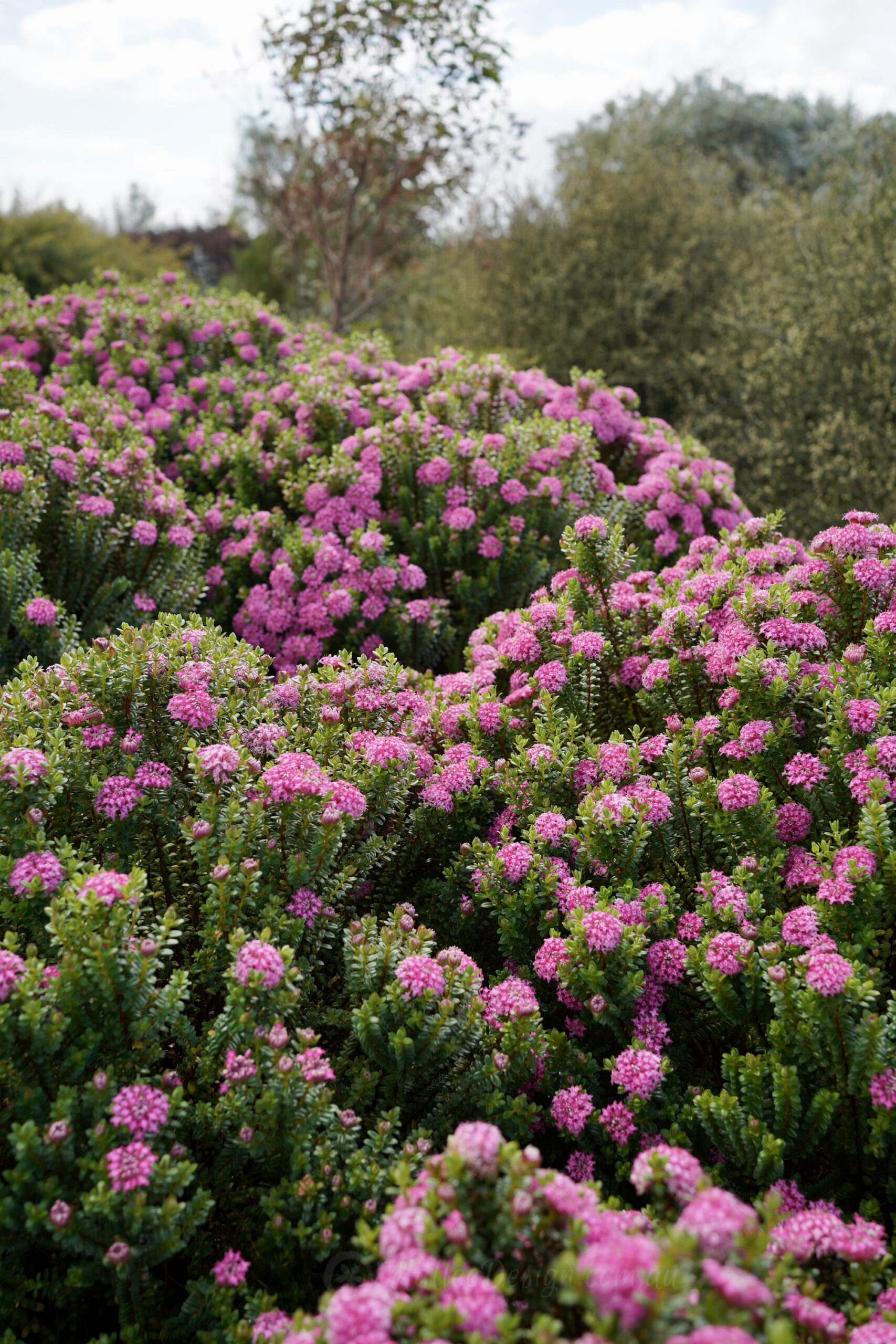
Pimelea: which one is which
I love Pimeleas, they seem to always be in flower and each state has its own unique species. Pimelea’s are a stunning addition to a garden or even a pot. They put on a show with a mass of flowers and the butterflies love them . But which one is which? We are trying our…
-
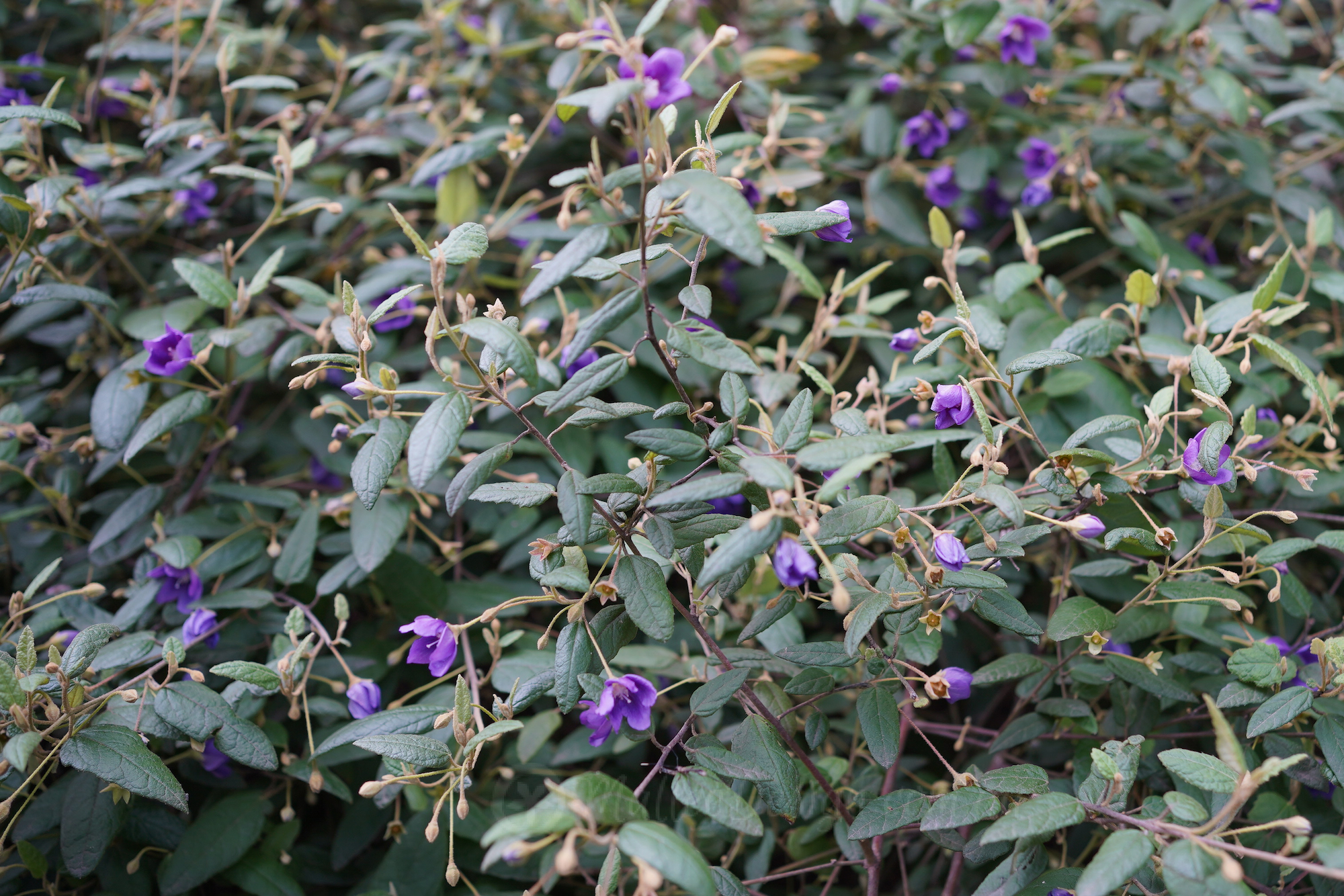
One of a kind: Howittia trilocularis
I discovered this unusual large native shrub in Cranbourne Botanical Gardens on my visit last year. I have never heard of it before but it instantly struck me with its deep purple flowers and small hairy leaves. It was planted as an understorey back drop shrub in one of the garden beds under the canopy…
-
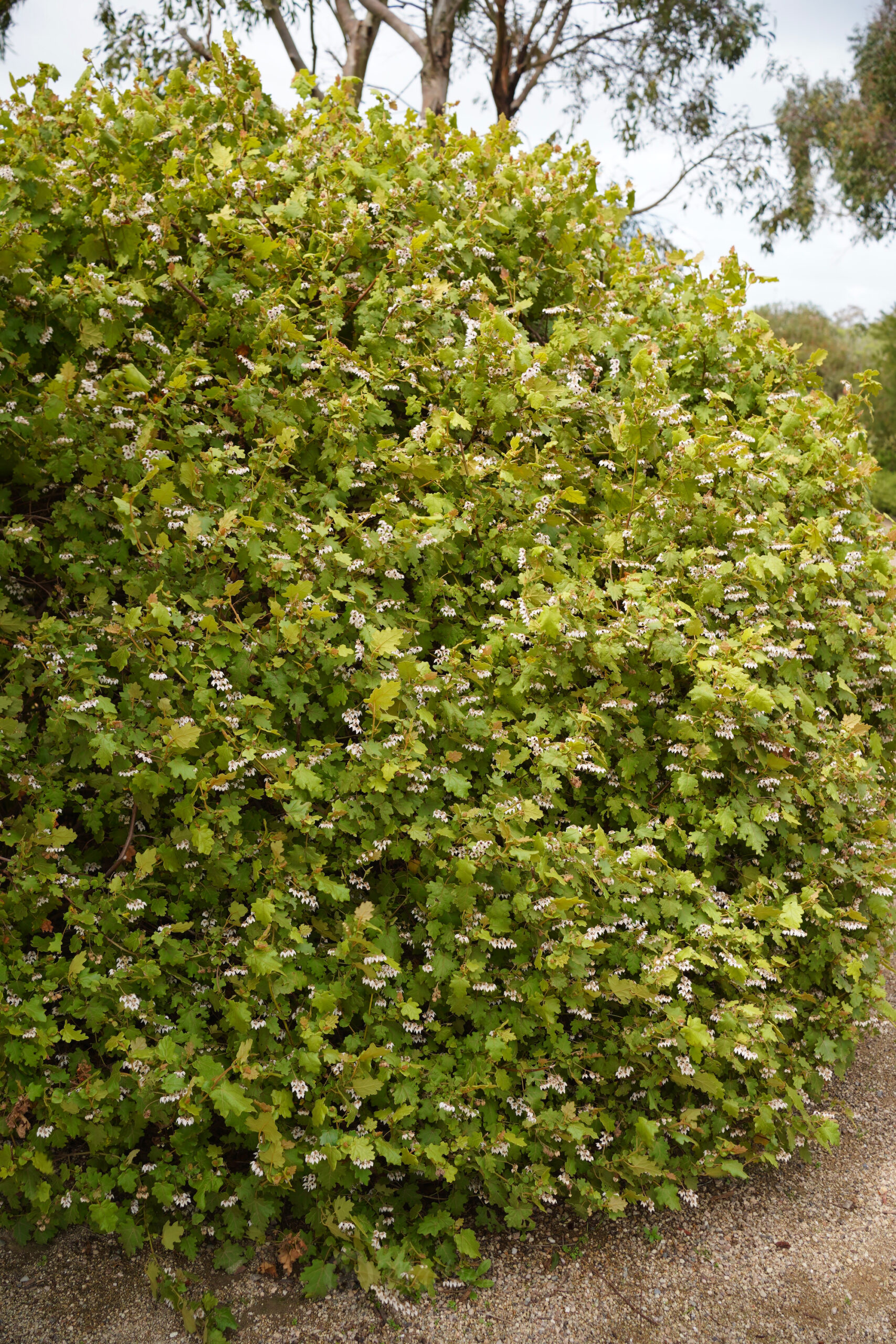
The limitless potential of Thomasia solanacea
I have written about this genus before but thought this species needs its own space on the blog as it really is an extremely versatile medium shrub. It is one of those plants for a trickier spot in the garden as it loves a dry shady position. It is endemic to south-west WA, it is…
-
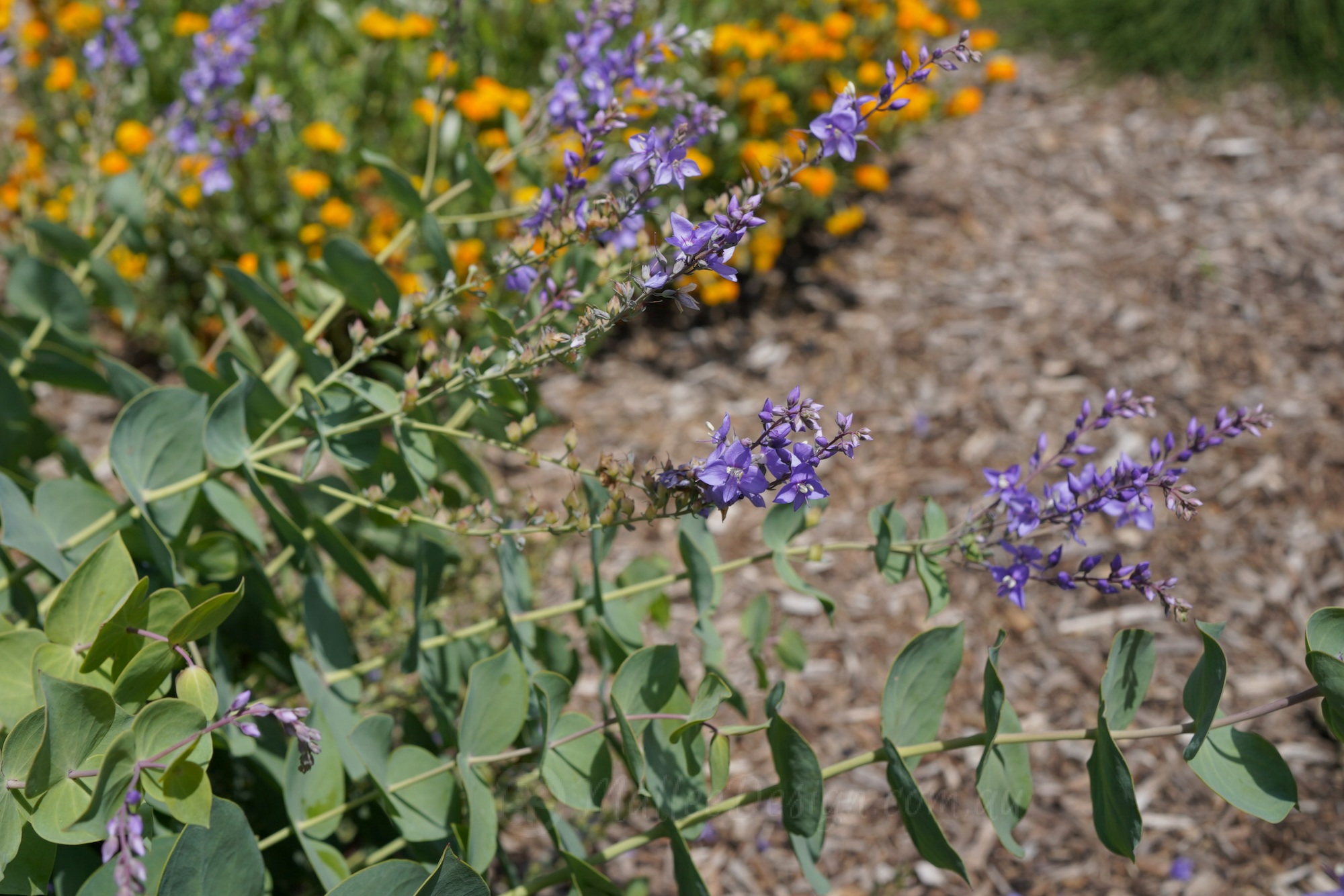
Lovely shrub of many names: Veronica perfoliata
This is to my knowledge currently Veronica perfoliata, it has gone through several differing identities and name changes, I won’t go into all of that, it just seems a shame as I think it may have detracted people from knowing about this useful plant. Firstly I love it because it has a very Eucalypt like foliage…
-
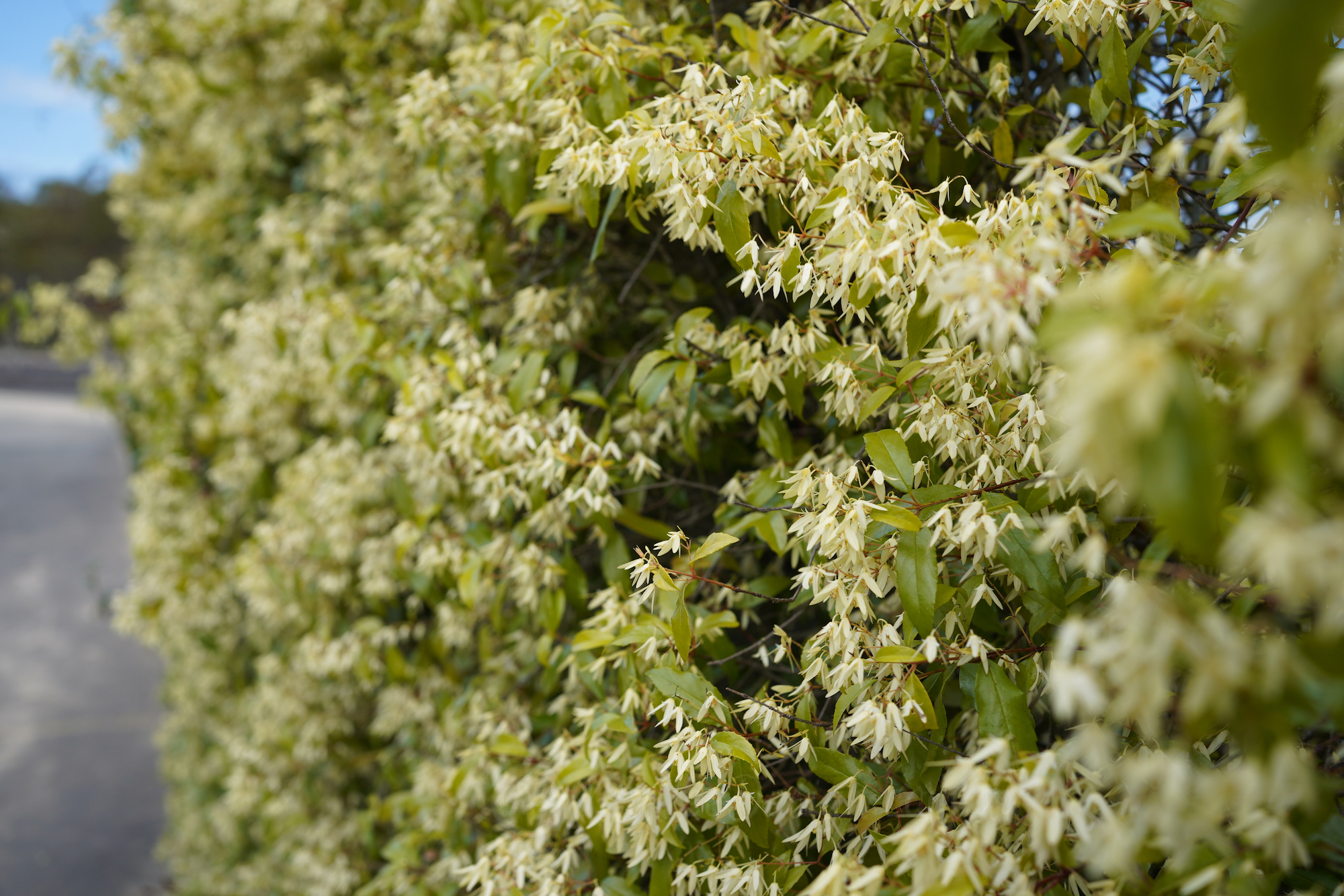
The perfect concealer: Aphanopetalum resinosum
Aphanopetalum resinosum is the answer to many difficult positions in the garden, from dark shady dry corners of the garden to ugly fences or buildings which need to be greened up, Gum Vine may be the solution. This robust native vine has bright green shiny leaves and reddish stems and when it is in flower…
-
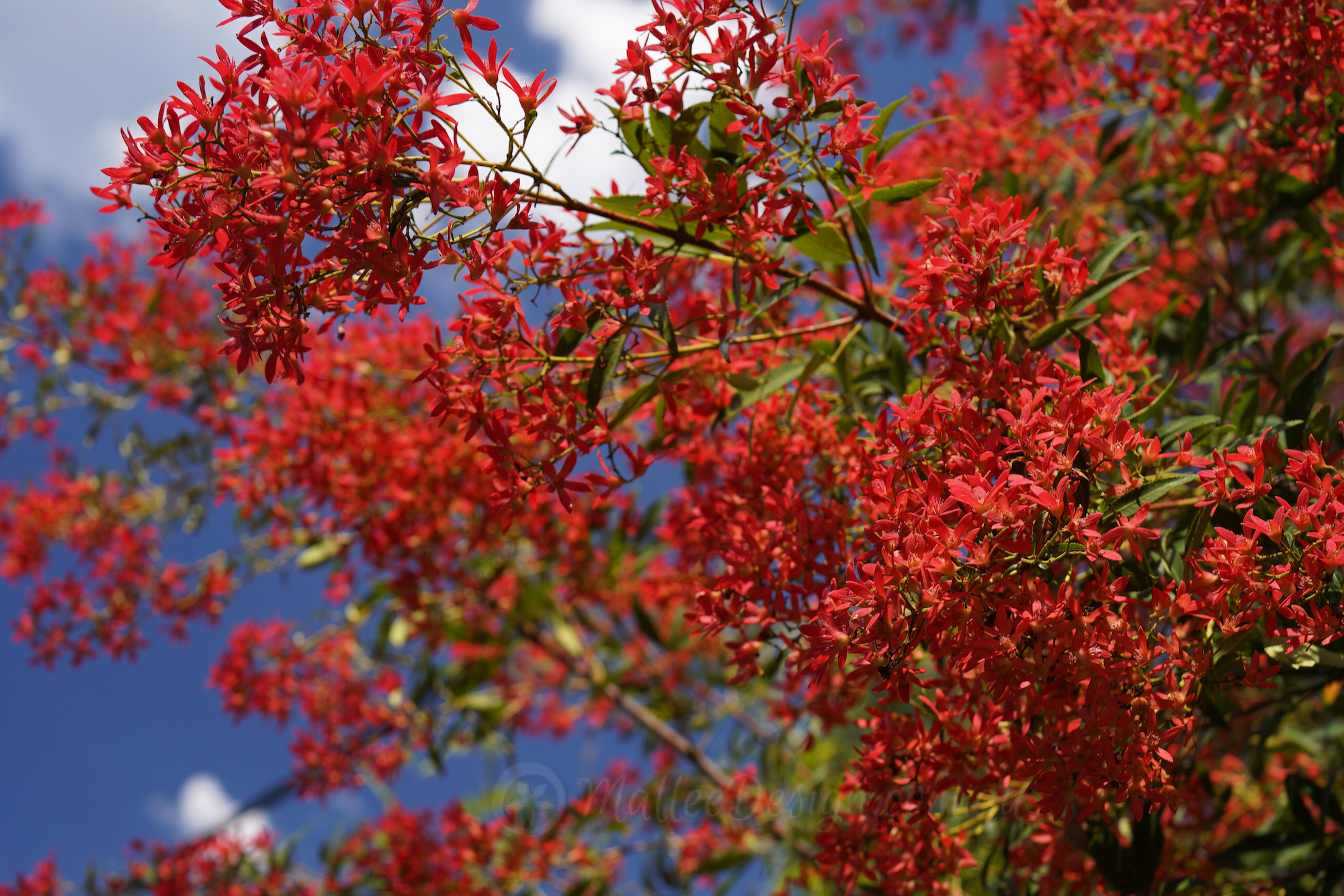
Merry NSW Christmas Bush: Ceratopetalum gummiferum
I am a bit of a Grinch when it comes to Christmas and often one of the things which pulls me our of my un-festive slump is our Ceratopetalum gummiferum or native Christmas Bush. This year I was a little late, as many have finished thier show by the time Christmas actually arrives. However, I…
-
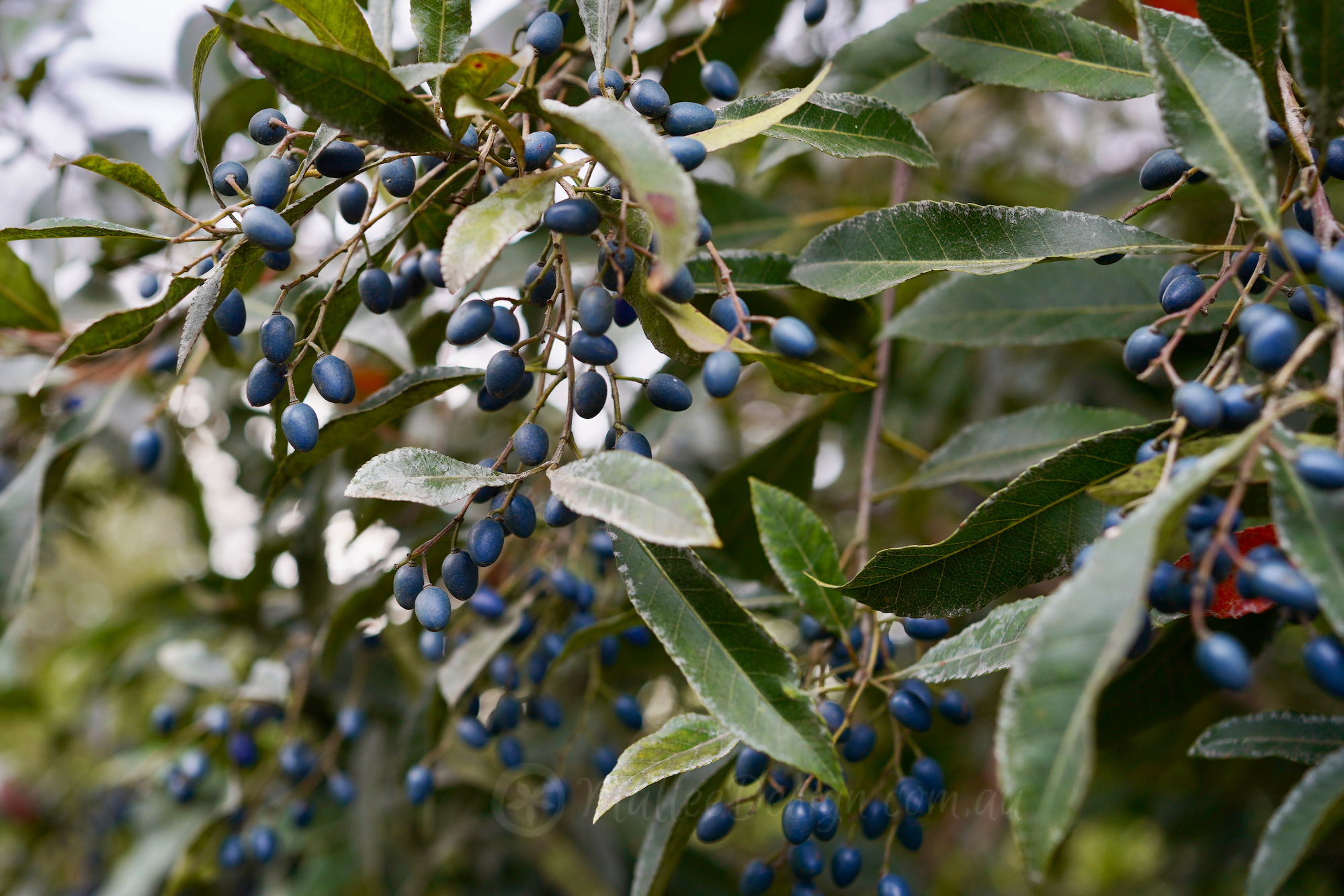
White or Pink? How do you like your Blueberry Ash? or covered in blue berries
Elaeocarpus reticulatus is one of the Spring flowering native tree species which really knocks itself out during its flowering season. It consistently covers itself in the little white fairy skirt like flowers to the point that it gives the whole tree a light hue. The other time of year this species looks incredible is when…
-
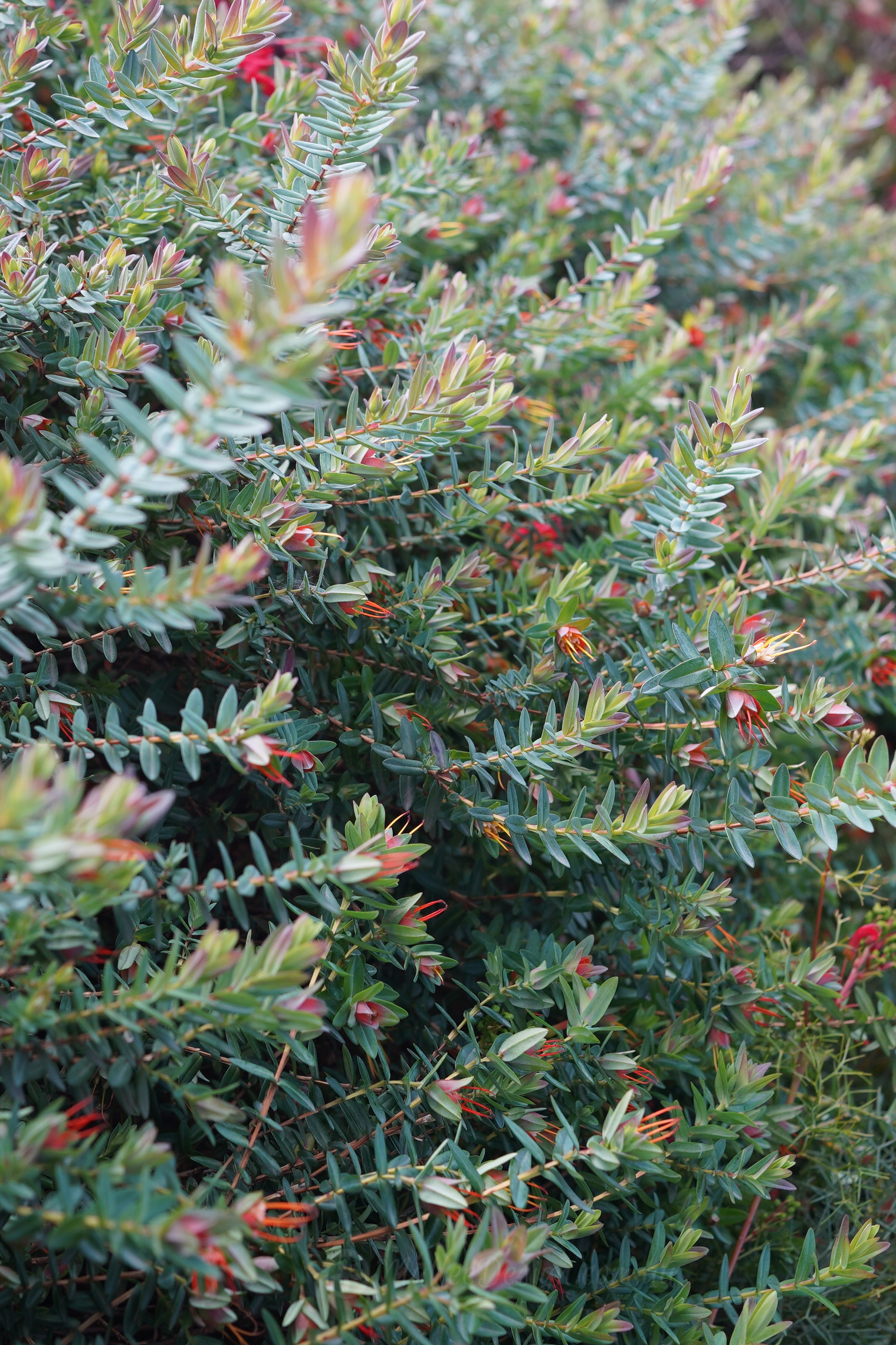
Darwinia citriodora another WA toughie
To be honest I didn’t realise this lovely medium shrub hailed from the West, silly me. I think I assumed Darwinias were local to coastal NSW due to the prominence of taxifolia and fascicularis when I go bushwalking close to home. They are a stunning Genus, all have intresting leaf structure and get covered in…
-
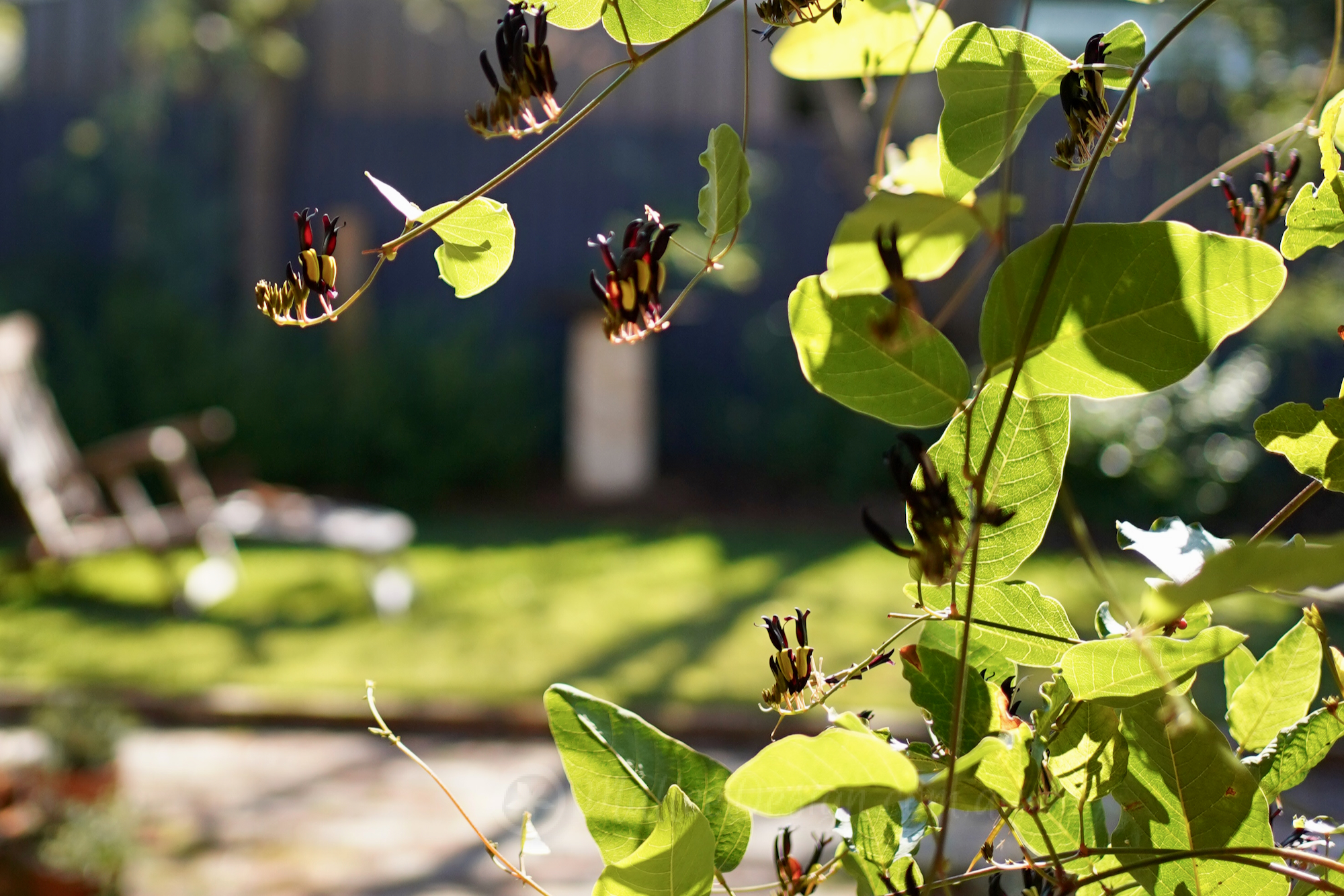
Eye catching Kennedia nigricans
Kennedia nigricans is an unusual climber which tends to draw in everyones attention. I use this Western Australian species whenever I need a quick growing cover to screen, suppress weeds or create shade. The large bright green leaves are broad for a Kennedia and the pea flowers hide a little amongst the foliage, but once…
-
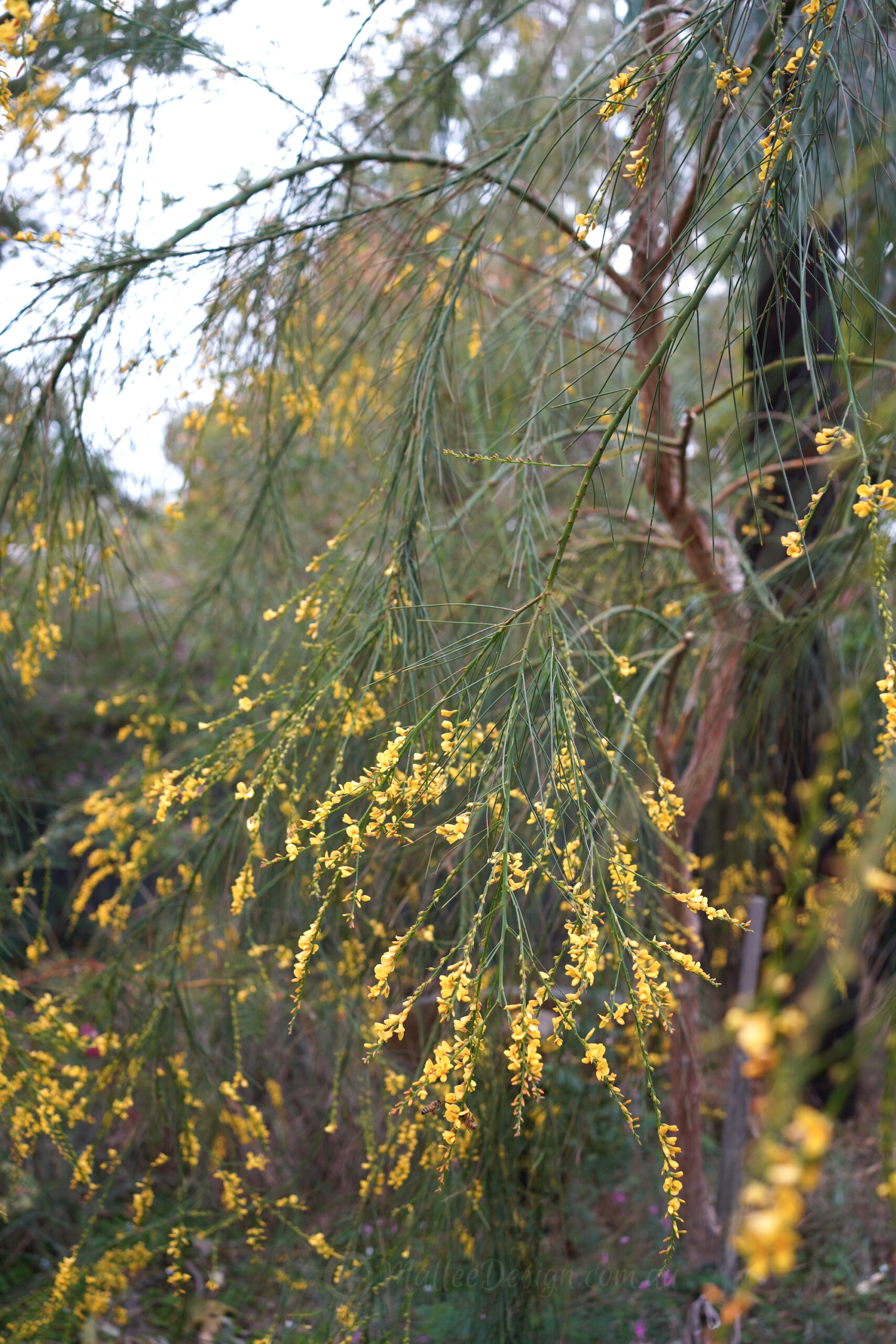
The unique Viminaria juncea
There aren’t many plants which you could get this species confused with, especially when it is in full flower. Viminaria juncea is a stand out feature shrub or small tree which is quite common in our bushland but not so often seen in cultivation. Shrub to 5mts tall The yellow pea flowers located on long,…
-

vulnerable Epacris purpurascens
For me this species signifies everything incredible about our local sandstone sclerophyll forest. The extraordinary stems of Epacris purpurascens cover themselves in tiny pinky white flowers and reach for the sun. There is something about them which is delicate but also symbolises endurance, they are a pretty wildflower in our bushland environment which can be…
-
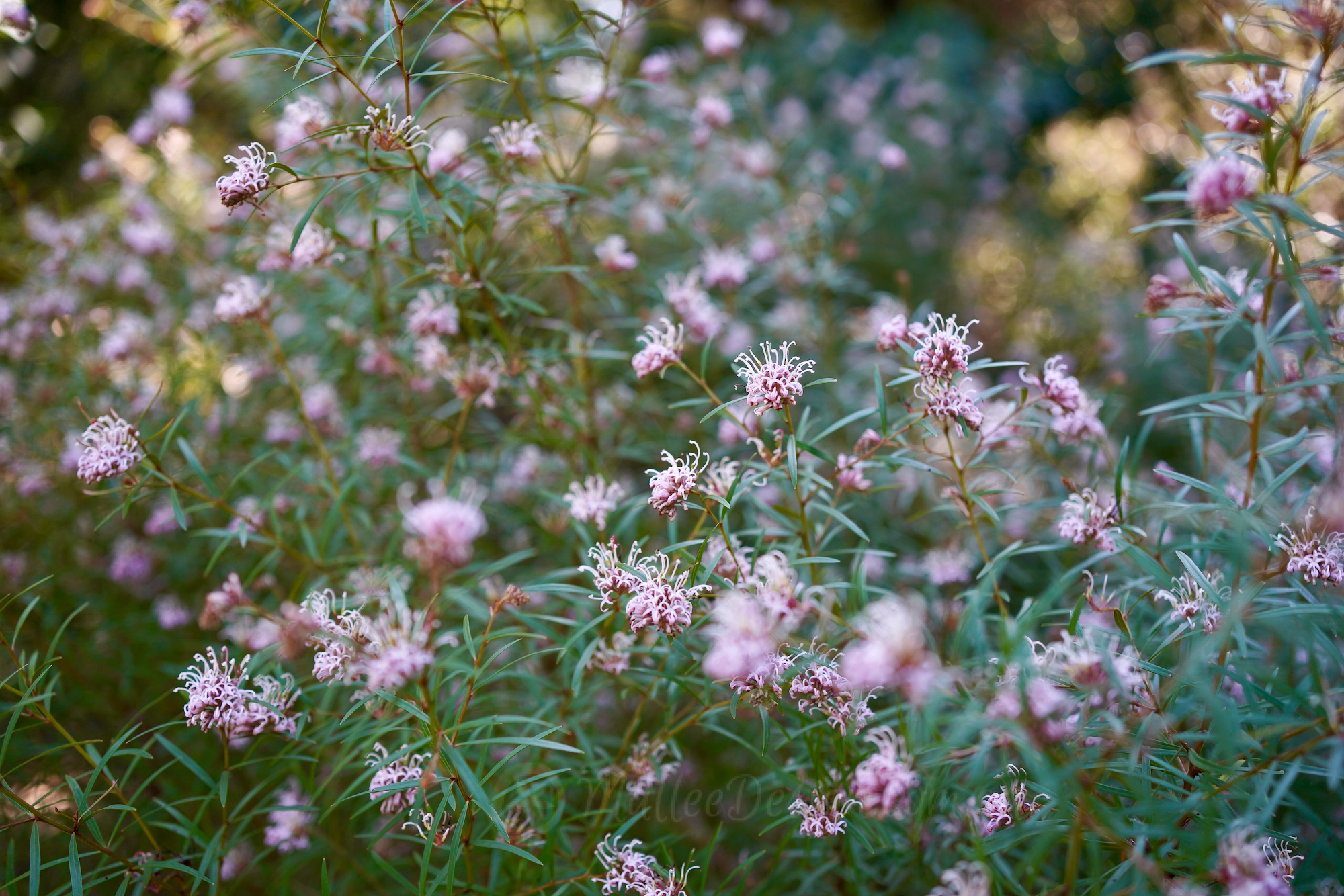
Bee Friendly Grevillea: Grevillea sericea
This is a local spider flower Grevillea which has huge ornamental potential and is a master at attracting native pollinator and honey bees to your garden. It is quite a common species on the east coast of NSW and can be found growing naturally from Toronto in the north to Heathcote in the South of…
-
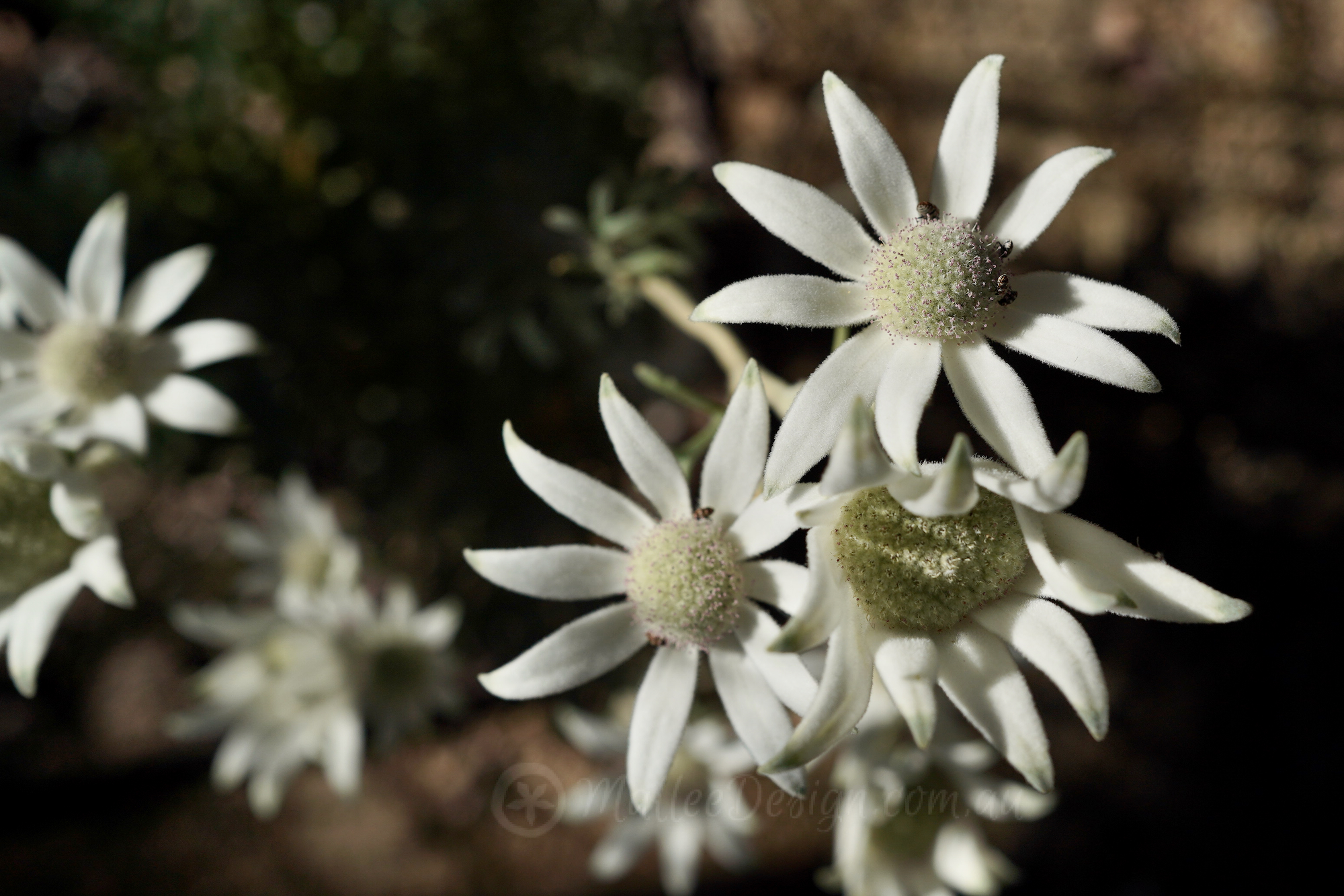
Tough as nails: Actinotus helianthi
I’ve learnt my lesson, plant them and leave them alone! I planted 5 potted Actinotus helianthi last year in my garden, 1 remains, the others were over loved and over watered I think, or there may have been some trampling going on courtesy of kids playing on the swing. Actinotus helianthi are wildflowers, it can…
-
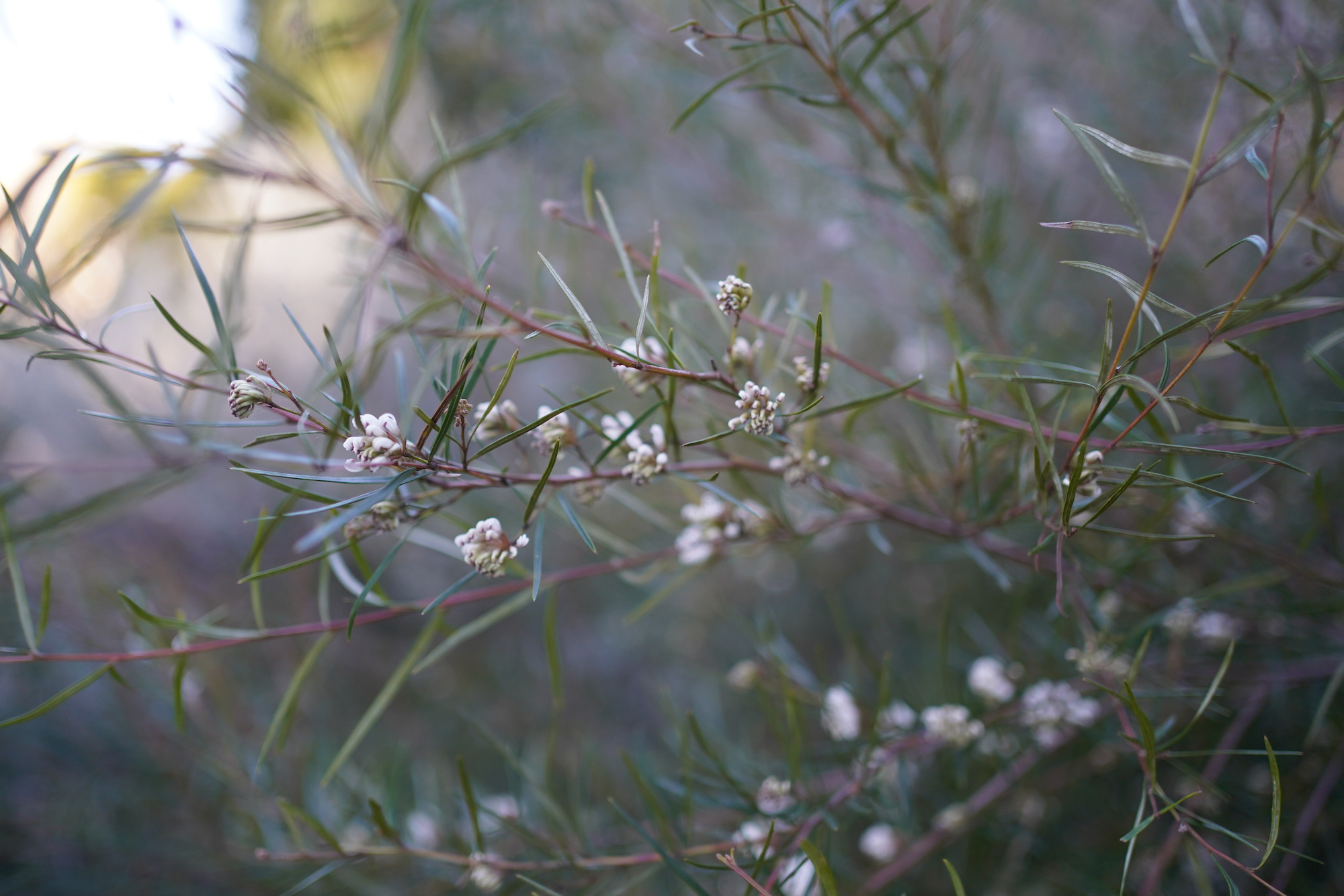
Wispy and Light: Grevillea linearifolia
As the name suggests this is a Grevillea with linear leaves, long skinny leaves which give it a gentle wispy habit. Combined with the pink new growth on the end of each stem, this is a showy species whether in flower or not. Grevillea linearifolia can be found naturally in the Greater Sydney Basin bushland…
-
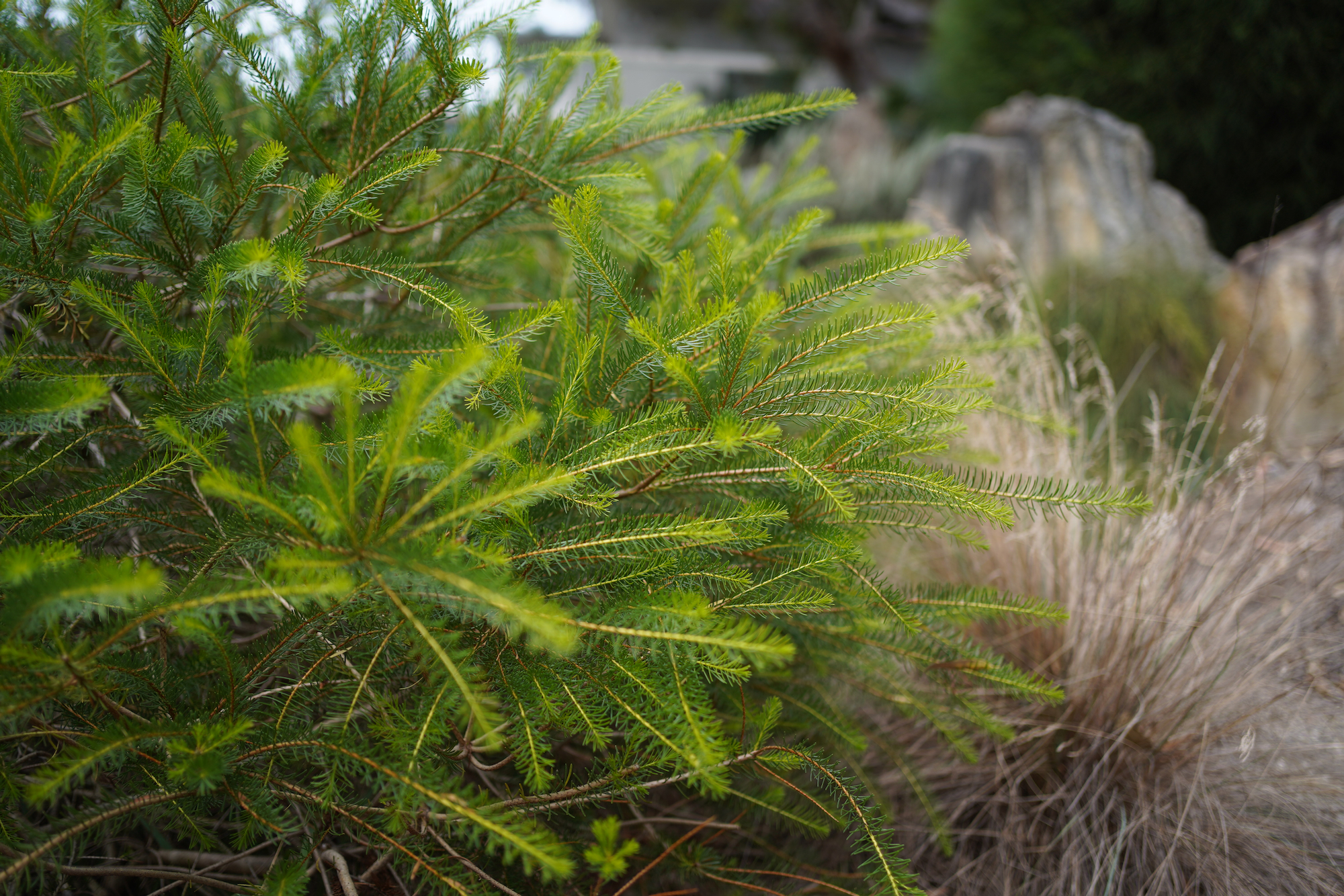
Calothamnus quadrifidus yellow : The younger sibling
This is the lesser known One sided bottlebrush, the sibling in the shadows if you will, of the very showy Calothamnus quadrifidus ‘Grey’. I love both of course, and I think this green leaf form of Calothamnus deserves to be utilised a lot more in the garden. Calothamnus quadrifidus ‘Yellow’ is a very hardy medium…
Category: Shade tolerant

